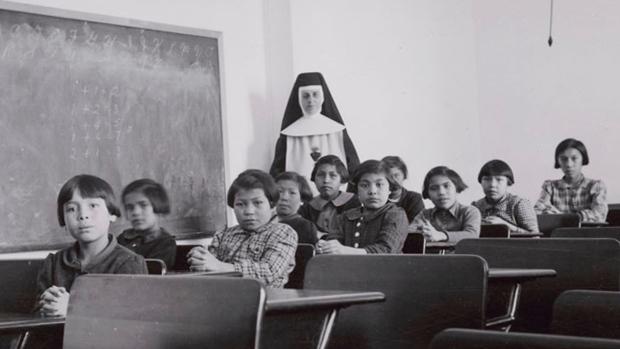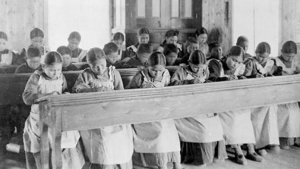|
Artist urging Supreme Court to preserve residential school testimony
CBC News
An artist who's the son of a residential school survivor is urging the Supreme Court of Canada to rule to preserve the stories of more than 35,000 people like his father so future generations can learn from the tragic chapter in the country's history. Carey Newman founded the group Coalition to Preserve the Truth to save the testimony delivered to adjudicators as part of the Independent Assessment Process (IAP), which was set up to determine individual compensation for survivors who suffered as a result of being forced into residential schools. But some, like the Assembly of First Nations, want those records destroyed to protect the privacy of survivors. The documents are now in the hands of the Supreme Court, which will decide their fate. "I think that future generations do have some right to those stories, because we are also impacted," said Newman, who came to Ottawa Thursday to argue his case to the Supreme Court. 'A really complicated process'The more than 35,000 accounts gathered through the IAP are separate from the 7,000 gathered and retained by the Truth and Reconciliation Commission, which held public events across the country to invite survivors to share their experiences. Newman believes the decision to keep the IAP stories on the historic record should have been up to each survivor. "One of the difficulties is that the consent process that would need to be in place to achieve that wasn't in place at the point of collecting these narratives or these statements," he said. "So in the ensuing years, survivors have passed away. There's no list or registry where we'll be able to contact everybody. So the process of informing everybody is going to be a really complicated process." With privacy the central concern among those who want the accounts destroyed, Newman's coalition is suggesting such solutions as redacting names and other identifiable information, while keeping the stories themselves intact. Intergenerational impact"A person going in and opening those files in 20 years wouldn't see anybody's names," Newman said. "They would see the story of what happened in the school, what school they went to, and maybe what community they were raised in. But there wouldn't be identifying information." Newman has travelled the country in recent years with his Witness Blanket art installation, which is made of pieces from different residential schools. He said the survivors he met during that time helped him understand his father's residential school experience, and that's what he hopes comes from preserving these stories. "It completely changes the way that I look back at that time, and the way that I understand my father as a person today. So that sort of speaks to the intergenerational impact of residential schools," said Newman.
|
.
Any original material on these pages is copyright © BishopAccountability.org 2004. Reproduce freely with attribution.


